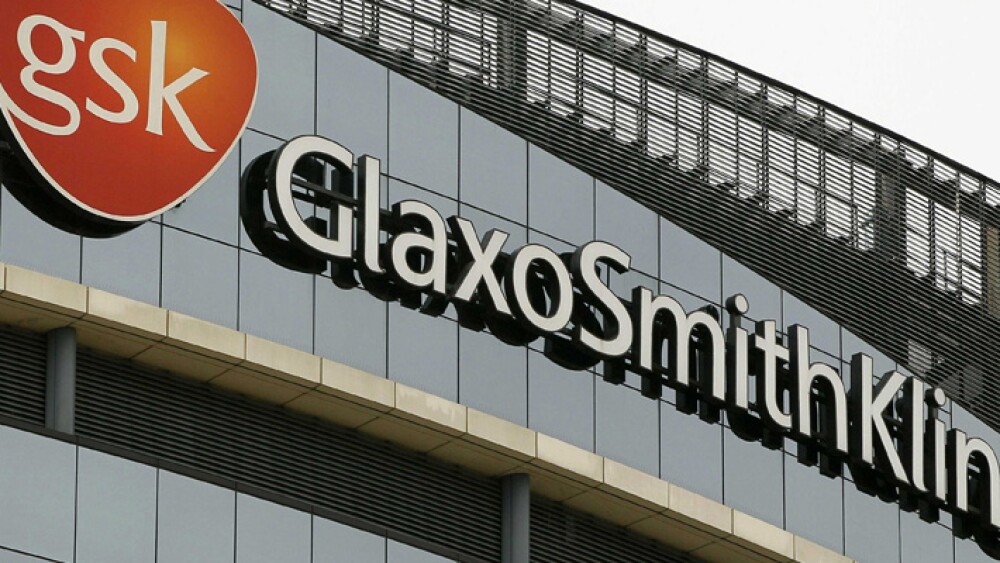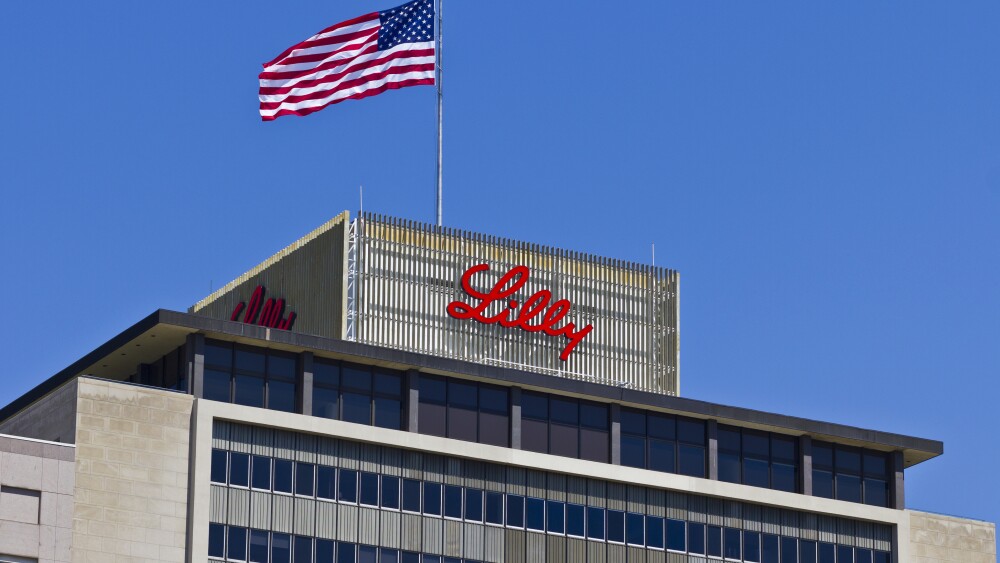May 4, 2017
By Mark Terry, BioSpace.com Breaking News Staff
The UK’s GlaxoSmithKline has had an up-and-down year, but in terms of market cap, it’s definitely been down. According to S&P Global Market Intelligence, the company lost $3 billion from its market cap in April. The cause appears to be its first-quarter financials, at least in part.
GSK, which provides earnings in British pounds, showed sales growth across all three of its businesses. Pharmaceuticals reported 4.2 billion pounds, Vaccines 1.2 billion pounds, and Consumer Healthcare 2 billion pounds. Group operating margins rose 34.4 percent for Pharmaceuticals, 29.6 percent for Vaccines, and 17.2 percent for Consumer Healthcare.
Overall, GSK reported $9.5 billion in quarterly sales, which were up 5 percent on a constant currency basis, but was up 19 percent in British pounds. The British pound has been weak, which overall helped the company’s quarterly revenue.
Sean Williams, writing for The Motley Fool, wrote, “In terms of its bottom line, GlaxoSmithKline saw its net cash from operations more than double and free cash flow more than triple from Q1 2016, with total earnings growth on a constant currency basis of 9 percent. Comparatively, the company topped Wall Street’s EPS and sales expectations by roughly 4 percent and 2 percent, respectively.”
So why the loss of market cap?
Well, one big reason is that a generic for GSK’s Advair has hit the market. The company is expecting to really feel that in the second half of this year, and that’s the bomb that hit the company’s stock value.
Williams sees two different “divergent storylines” with GSK. The company has put in place several cost-saving initiatives directed at its supply chain and pharmaceutical divisions, which has made it a more efficient company. GSK’s HIV segment is doing well. Triumeq sales rose 45 percent, Breo rose 61 percent, and Anoro grew 67 percent, all on a constant currency basis.
Advair is projected to bring in $3.9 billion in annual sales, although Advair is likely to take a big hit, maybe to a high as 50 percent year over year. Williams writes, “Even though Glaxo’s core therapies and new vaccines are growing at a quicker pace than the expected decline in Advair’s sales, it’s nonetheless the end of an era.”
Williams concludes, “However, the company anticipates holding to its robust dividend yield of nearly 5 percent, and its management team believes a number of larger drug launches could be coming in the near to intermediate term. At around 15 times its estimated 2017 EPS, the company looks reasonably inexpensive, but just understand that it won’t be without its occasional hiccup.”
Only a few days ago, the company announced it was investing $139 million into a new manufacturing site in Rockville, Md. This is in support of the growth of Benlysta (belimumab) for adults with active, autoantibody-positive, systemic lupus erythematosus (SLE). The monies will be used to grow internal capacity to increase bulk drug substance production by almost 50 percent at the site.
It also expects to use the plant to manufacture a new subcutaneous type of belimumab.
“Benlysta is the first medicine specifically developed and approved for SLE in over 50 years,” said Sheri Mullen, vice president of Immunology & Rare Diseases for GSK, in a statement. “We are so pleased that on the first day of Lupus Awareness Month we are able to announce this expansion in Rockville, increasing our ability to provide this important medicine to patients.”
GSK is currently trading for $41.69 (US).





